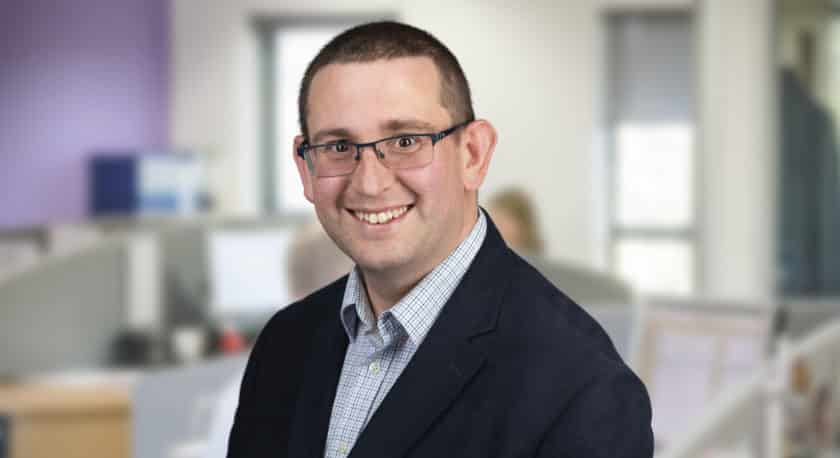In his regular article for Professional Paraplanner, Dan Atkinson, head of Technical, Paradigm Norton Financial Planning, examines a way to help paraplanners focus on what’s important to them and their clients on their financial plans.
Three words. A lens to focus your attention. Each year CFP, CEO, coach, author, and podcaster, Steve Sanduski reflects, reviews, and decides on three words for the year. They help keep him focused on the things which are important. https://stevesanduski.com/my-3-words-2023/
Carl Richards, CFP, author, sketch artist, podcaster, and speaker, talks about a Statement of Financial Purpose. He encourages people to get clear on what’s important to them and nail it to the top of their financial plan.
I thought about this a couple of years ago and wrote down: fresh air, fresh ideas, connecting deeply with colleagues, and laughter with family.
Why am I telling you this?
We live in a world full of exciting opportunities. Ideas coming from all different directions. Things to watch, read, write, study, experience, and do. Having a framework to help you filter these things down is essential. It’s not even about separating the good from the bad, or the best from the good.
Having a decision-making framework like this would of course be helpful for clients. I’d like us to spend a few minutes thinking about us and how we develop ourselves as paraplanning professionals.
What decisions might you be thinking about?
There are a lot of minor decisions that we make each day. What to wear? Whether to drink tea, coffee, or water? They don’t necessarily need a framework. However bigger questions do. Where to live? What firm to work for? Who to have a relationship with? It really helps to have it clear in your mind who, and what, is important to you, and what your priorities are.
Let’s focus in on decisions about how to develop yourself as a professional paraplanner this year. There are hundreds of opportunities you could engage with: Exams, blogs, magazines, mentoring, conferences, symposiums, webinars, assemblies, insights, taking place in person and online, from providers professional bodies and independent organizations. You could almost spend all your time on development!
A two stranded approach to professional development
Firstly, we need to gain knowledge, so we know what we are talking about. Curiosity is a common trait amongst paraplanners. We are eager to find out more and get under the bonnet. I think it’s great to build up a broad knowledge. However if we are building a framework, a lens to focus our attention, we need to get a bit more specific.
This year which gaps in your knowledge do you want to build on? Are there topics that are coming up in your work? Do you have a colleague who has skills, traits, or expertise that you would like to be more like? Be reasonably specific but remember this is a high-level decision-making framework.
The second strand is about action. Being a great paraplanning professional doesn’t stop at knowing things. We need to work on how we do and apply it. This might include practicing the maths/technical side of things, but we should also work on our communication skills. A large part of this will be our ability to use the written word effectively – often writing documents for clients to read. However, we also need to communicate well with our colleagues.
Both strands are important. I read a blog once which said that knowledge is like bullets and action is like a gun. If you don’t have a gun (action) you can’t do much with the bullets (knowledge)! They did also say that if you don’t have bullets, you could still throw the gun at your target though…
Remember it’s a framework, so strike a balance between ‘anything goes’ and ‘too specific’. Allow yourself to stray outside occasionally but treat the framework like a north star to keep you on track.
Review is important. Firstly, to check progress, but also to check if the focus remains right. It’s unlikely that you will radically change direction, but an adjustment could be needed.
Putting it into practice
You have decided to get better at understanding pensions (knowledge strand) and get better at writing with less waffle (action strand). You’ve decided to express this as “Get better at pension planning and write more precisely” and have written this down somewhere you will see it every day.
You have been invited to an event where you get to choose which sessions you attend. Looking at the agenda, a session looking at the taxation of investment bonds clashes with a session working through annual allowance pension considerations. Both look great and would help you, but you can only attend one. Later on, there is session on using Excel at the same time as a session on getting rid of jargon in reports. Using your framework, which sessions do you attend?
My challenge to you
Grab a drink, find a quiet spot, and start thinking about what things you might want to work on in the knowledge and action strands. Write them down. Rank them and pick the top few in each strand. String them into a sentence or a series of bullet points. Stick this in your line of sight where you work and try using it to navigate opportunities. You might need to go back and refine, but give the framework approach a chance.





























